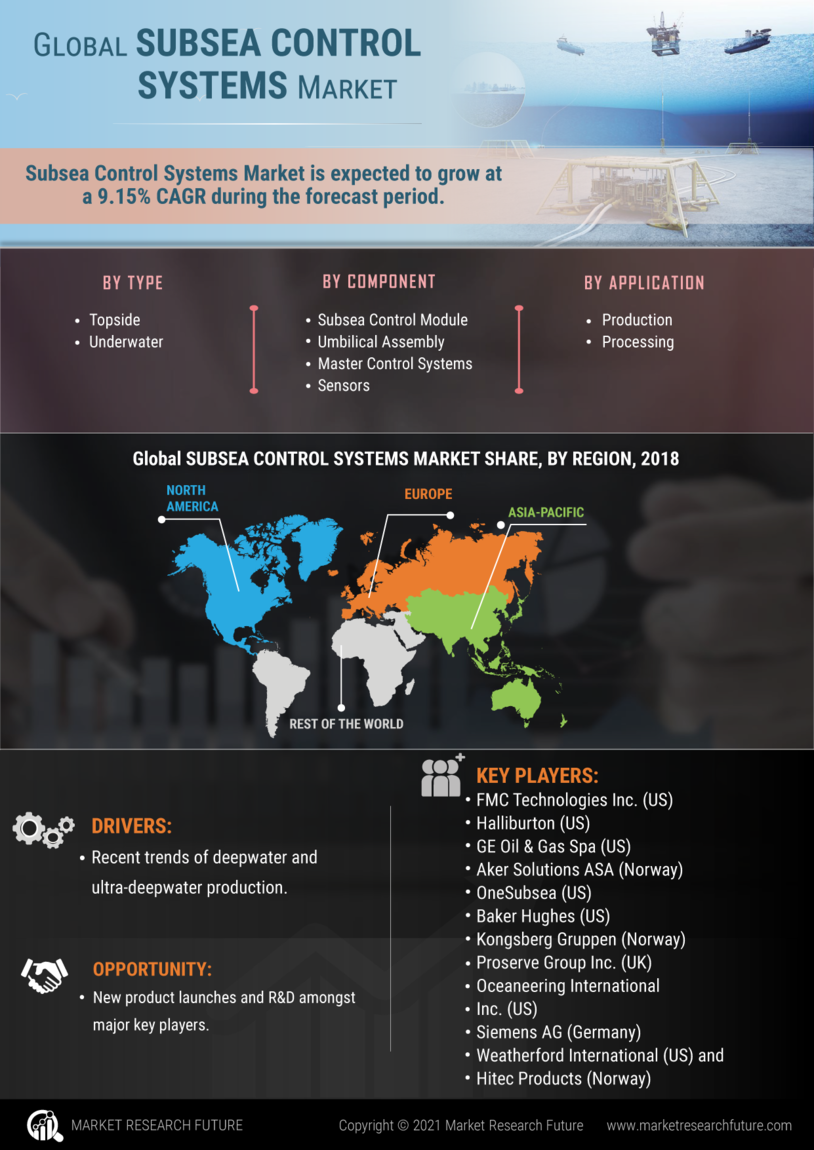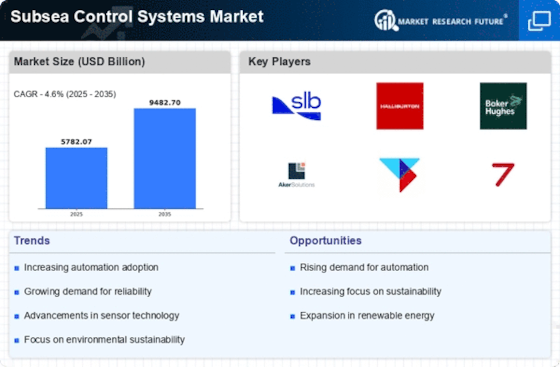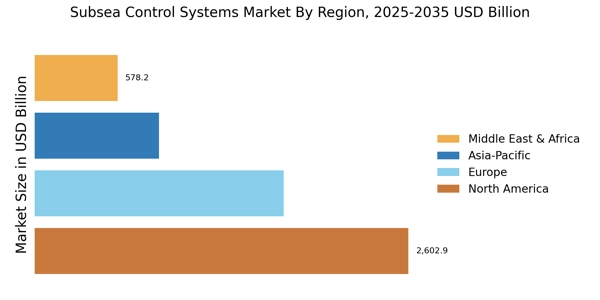Focus on Environmental Sustainability
The Subsea Control Systems Market is witnessing a growing emphasis on environmental sustainability. As the energy sector faces increasing scrutiny regarding its environmental impact, companies are investing in subsea control systems that minimize ecological footprints. These systems are designed to enhance operational efficiency while reducing emissions and waste. The adoption of sustainable practices is not only a regulatory requirement but also a market differentiator, as consumers and stakeholders demand greater accountability from energy producers. This focus on sustainability is driving innovation in subsea control technologies, leading to the development of systems that are both environmentally friendly and economically viable, thereby fostering growth in the subsea control systems market.
Regulatory Support for Subsea Operations
The Subsea Control Systems Market is bolstered by supportive regulatory frameworks that encourage subsea exploration and production. Governments are increasingly recognizing the importance of subsea resources in meeting energy demands and are implementing policies that facilitate investment in subsea technologies. Regulatory bodies are also establishing safety and environmental standards that promote the adoption of advanced subsea control systems. This regulatory support not only enhances operational safety but also drives innovation within the industry. As companies strive to comply with these regulations, the demand for sophisticated subsea control systems is likely to increase, further propelling market growth in the coming years.
Increasing Demand for Offshore Oil and Gas
The Subsea Control Systems Industry is experiencing a surge in demand due to the increasing exploration and production activities in offshore oil and gas fields. As conventional onshore reserves deplete, companies are turning to subsea resources, which require advanced control systems for efficient operation. The International Energy Agency projects that offshore production will account for a significant portion of total oil and gas output in the coming years. This trend necessitates the deployment of sophisticated subsea control systems to manage complex operations, enhance safety, and optimize production efficiency. Consequently, the growth in offshore activities is a primary driver for the subsea control systems market, as operators seek reliable and innovative solutions to meet their operational challenges.
Rising Investment in Renewable Energy Sources
The Subsea Control Systems Market is also influenced by the rising investment in renewable energy sources, particularly offshore wind and tidal energy. As countries seek to diversify their energy portfolios, the integration of subsea control systems in renewable projects is becoming increasingly important. These systems are essential for managing the complex operations associated with offshore renewable energy installations, ensuring efficiency and reliability. The global shift towards cleaner energy sources is expected to drive substantial investments in subsea technologies, with projections indicating a significant increase in the deployment of subsea control systems in renewable energy projects over the next decade. This trend presents a unique opportunity for growth within the subsea control systems market.
Technological Innovations in Subsea Control Systems
Technological advancements play a pivotal role in shaping the Subsea Control Systems Market. Innovations such as enhanced remote monitoring, automation, and data analytics are transforming how subsea operations are conducted. The integration of Internet of Things (IoT) technologies allows for real-time data collection and analysis, leading to improved decision-making and operational efficiency. Furthermore, advancements in materials and design are enabling the development of more resilient and efficient subsea control systems. According to industry reports, the market for subsea control systems is expected to grow at a compound annual growth rate of over 5% in the next five years, driven by these technological innovations that enhance the performance and reliability of subsea operations.

















